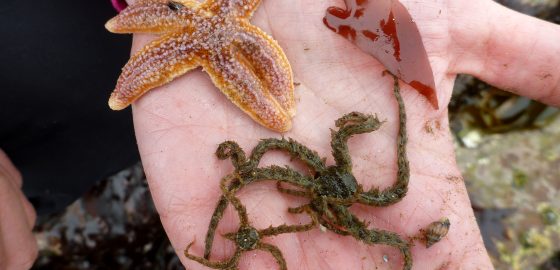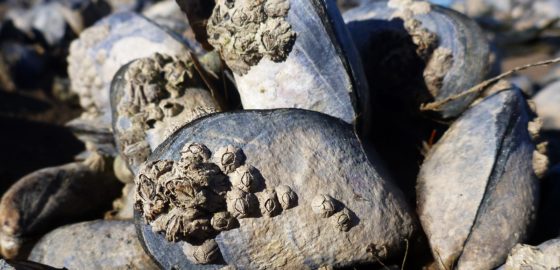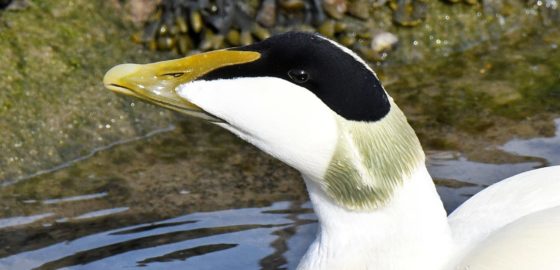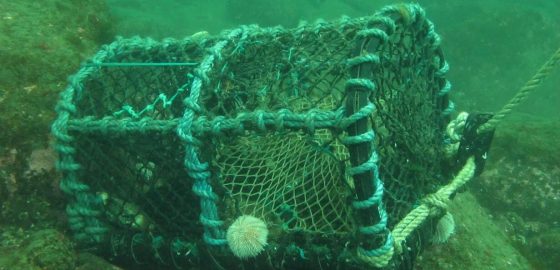
Published: 23rd April 2020
Online Marine and Coastal Activities While Social Distancing
During the present Covid 19 pandemic the most important message to all of us is to #StayAtHome and to #StaySafe. Visits to the coast are off for the majority of us but the good news is that there are ways to enjoy marine life without leaving the house. We have listed some of the available resources below. This is very much a work in progress so if you come across any good websites or initiatives that have been missed off then please let us know.
Citizen Science Activities
A great way to experience the natural world remotely while also helping with marine conservation is to visit the Zooniverse website Describing itself as people-powered research, Zooniverse contains details of almost a hundred activity research projects that are seeking participants to help out. No specialist skills or knowledge is required. These cover a range of topics from language and historic through physics, astronomy and nature. Current coastal and marine projects include:
Beluga Bits were people are asked to examine underwater photographs of wild beluga to help scientists their age, sex and group size
Mantatee Chats where you can help with the identification and classification of manatee calls
Invader ID where you can help track changes in coastal environments by identifying marine invertebrates
If you want to help out with projects that are not marine-related then there are also plenty of recording schemes that can participate in from your own backyard. These include the BTO Garden BirdWatch, the BSBI Garden Wildflower Hunt, and the Garden Butterfly Survey. You can also submit wildlife records from your garden or during your daily allowed exercise via the ERIC North East recording portal.
Virtual Wildlife Experiences
Scottish Natural Heritage have eight virtual dives which can be viewed online as well as a playlist of 33 videos illustrating Scotland’s seas. Excepts include footage of seals, basking sharks, sea caves, and diving guillemots at Petticowick near St Abbs.
Natural England has provided a playlist of 32 videos from English waters, including an underseas tour from Lindisfarne to Spurn Point.
A number of locations broadcast live footage of wildlife via webcams. Examples can be found at the websites of The Wildlife Trusts and The Scottish Wildlife Trust
Kittiwake Cam: The River Tyne is home to the most inland breeding population of kittiwakes in the world. The birds send the winter months at sea before returning to breed on buildings and ledges between February and August. The Durham Wildlife Trust’s Kittiwake Cam stream live footage of nesting birds from a ledge at the BALTIC Centre for Contemporary Art.
The National Marine Aquarium in Plymouth has been live streaming events via its Facebobok page. Recordings of these can be found on their YouTube channel, including this footage of stingray feeding.
Further afield, the Monterey Bay Aquarium in California has a number of live camera feeds featuring kelp forests, moon jellyfish and sharks, among others.
Encounter Edu offer a number of multimedia collections which include a coral reef safari and an opportunity to explore an undersea mountain from a submarine.
For birdwatchers (or aspiring birdwatchers), a virtual bird walk along the Tyne Estuary is available from the Old Low Light Heritage Centre. The walk is led by David Hirst and includes sighting of eider, turnstone and reshank.
Educational Resources
The Marine Conservation Society is running a series of Cool Seas Webinars via Zoom. These are aimed at ages up to 11 and will last approximately 30-45 minutes. The webinars only be available to the first 100 attendees and you must pre-register in advance. If you are unable to join live then webinar recordings are available afterwards on the MCS’s YouTube channel.
Marine Scotland has provide links to some of their marine themed resources, including a virtual tour round one of their research vessels.
For adults, a number of free Massive Open Open Courses (MOOCs) are available to sign up to:
The University of Southampton offer a course entitled Exploring Our Ocean via FutureLearn. Topics covered include ocean biodiversity, ocean currents, and human impacts on the ocean.
The One Planet, One Ocean course from SDG Academy is self-paced and open till September 15th 2020. Modules include marine life and minerals, marine ecosystems, and oceans and climate.





